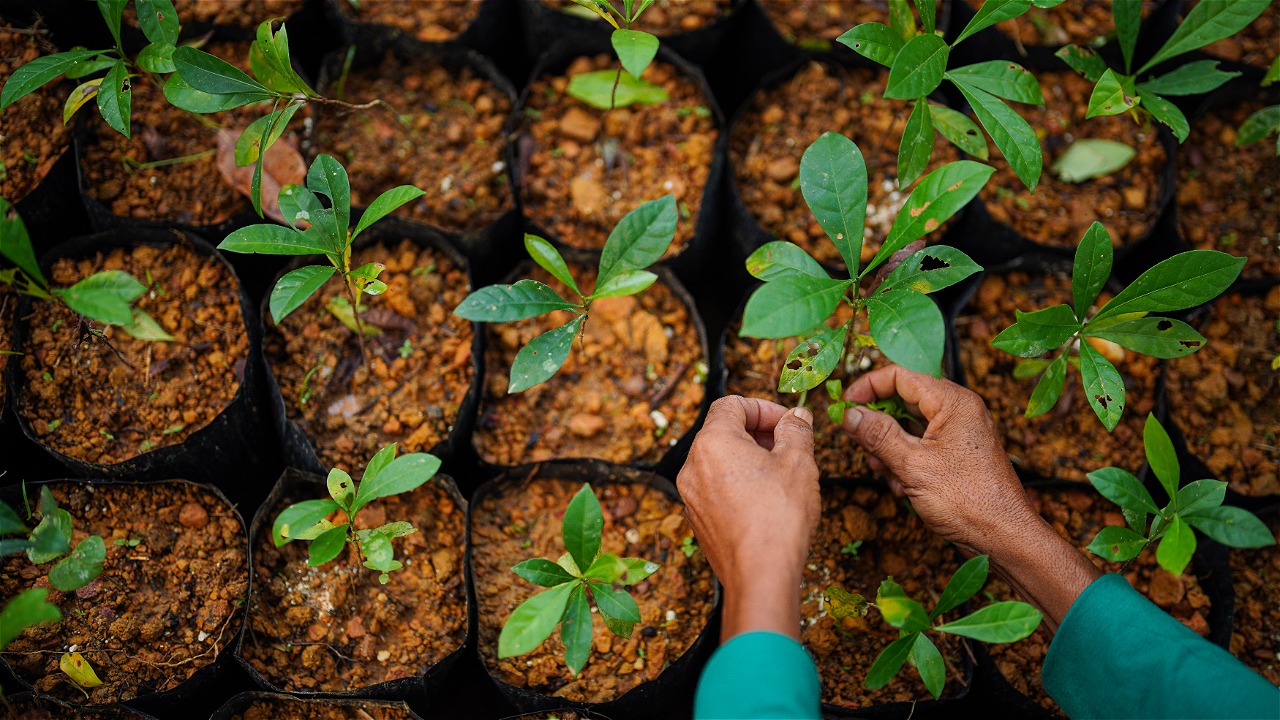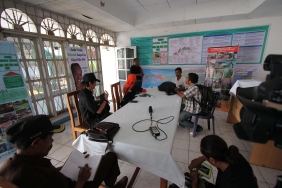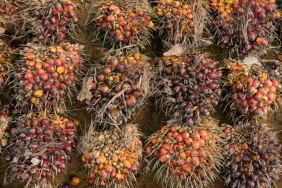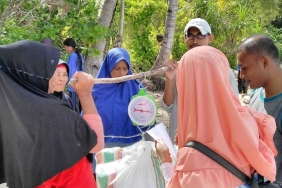EAT ASIA PACIFIC FOOD FORUM
The world's growing population, which is expected to reach 9.5 billion by 2050, presents serious challenges in the food sector. Meanwhile, this year the UN reported a resurgence in the number of hungry people in the world that had previously been in steady decline for more than a decade. As many as 815 million people in the world currently suffer from malnutrition yet one-third of all food production in the world goes to waste. In parallel, the phenomenon of obesity and overweight is now experienced by 2 billion adults and children with a growing trend. The outbreak of serious non-communicable diseases such as diabetes, stroke and heart problems are also caused by unhealthy diets which are increasingly burdening the health system costs of countries in the world today.
On the other hand, the process of food production and consumption from planting, care, harvesting, distribution, to the waste produced has resulted in a severe environmental crisis that leads to the phenomenon of climate change. Agricultural activities, plantations, livestock and fisheries, which are the source of food supply, are the single largest contributor to greenhouse gas emissions today, which are also the cause of deforestation, extinction of animal species, and loss of marine and freshwater ecosystems.
These facts demonstrate the failure of the current global food system to provide food sources that are able to meet the needs of current and future generations (sustainable food sources). The EAT Forum initiative, led by the EAT Foundation, builds on this awareness. As a global initiative, EAT takes a systemic and holistic approach to finding solutions to the interconnected issues of food, health and the environment.
Achieving the targets of the Sustainable Development Goals and the Paris Climate Agreement will largely be determined by the success of global citizens in creating resilient food systems and adopting sustainable diets. As the world's most policy-influential region with the highest population and the world's hub of innovation, investment and business with the greatest food and biodiversity, the Asia Pacific occupies a key position in determining and leading the transformation of the world's food system.
This underlies the idea of implementing the EAT Asia Pacific Food Forum which took place in Jakarta on October 30-31, 2017. The forum, which was attended by politicians, scientists, entrepreneurs, food industry practitioners, and culinary experts from various countries, was aimed at encouraging collaborative and integrated action between sectors and the dissemination of knowledge and information about innovations and best practices to produce solutions at the local, regional and global levels that can improve the world food system.
The significant support shown through the presence and participation of a number of members of the Working Cabinet of the Republic of Indonesia, including Vice President H. Jusuf Kalla, Coordinating Minister for People's Welfare Puan Maharani, Minister of Health Professor Nila F. Moeloek, Minister of Finance Sri Mulyani Indrawati, Minister of Bappenas Bambang Brodjonegoro, and Minister of Foreign Affairs Retno Marsudi indicates Indonesia's definite steps in support of improving food systems for maximum human and environmental health as part of Indonesia's achievement of the Sustainable Development Goals.
However, from the presentation delivered by each executive representative, it can be said that the orientation of the Indonesian government is still limited to efforts to ensure food security or food availability rather than ensuring the sustainability of food resources in the long term. Land and spatial arrangements, purchasing power, and basic knowledge of nutrition and nutrition are only a few of the many challenges that the Indonesian government must face to realize food sustainability that nourishes people while preserving the environment.
WWF Competence Forum: The Role of Retail and Foodservice Industry in Promoting Healthy and Sustainable Food Production and Consumption
In line with WWF-Indonesia's conservation goal to increase the number of sustainable products in the domestic market, the Communications & Advocacy team in collaboration with the Policy, Sustainability & Transformation team used the moment of the EAT Asia Pacific Food Forum to build discussions with retail and food service business partners to identify the strategic role of each business type to promote sustainable production and consumption practices along the food supply chain. The discussions were conducted with WWF-Philippines as an organizing partner under the framework of the joint program 'Sustainable Consumption and Production - Thailand, Indonesia, Philippine' funded by the International Climate Initiative (IKI) of the German government (info on the IKI SCP-TIP program can be found in Footprint issue 2).
The discussion was attended by a number of invitees and participants from Indonesia and the Philippines representing government, private sector and civil society organizations relevant to the issue of sustainable consumption and production. In addition, the discussion was also attended by general participants of the EAT Asia Pacific Food Forum consisting of various groups including representatives of academia, international organizations, companies, research institutions and NGOs who have an interest in topics related to the role of retail and the food service industry. The discussion featured four presentations delivered by WWF-Indonesia, the Coordinating Ministry for Economic Affairs, CIFOR and the Philippine Center for the Environmental Protection and Sustainable Development Inc.
The discussion on sustainable production highlighted the issue of palm oil production in Indonesia, which is increasingly associated with deforestation of natural forests and other illegal land clearing practices, such as land burning, peatland conversion, and so on. Given the strategic value of palm oil commodities for the Indonesian economy, the need to realize palm oil production practices is increasingly urgent and requires the support of various parties including retail and food service businesses. One of the efforts that this business sector can make is to provide products made from sustainable palm oil and inform consumers including conveying facts about the importance of consuming sustainable products. However, it is unfortunate that most retailers and foodservice businesses are not willing to prioritize the sale of such sustainable products citing low profit margins (as sustainable products are generally more expensive than regular products). Indonesia is currently the third largest consumer of palm oil in the world. Therefore, efforts to change palm oil consumption trends in the domestic market also have the potential to have a significant impact compared to interventions in the international market.
Meanwhile, the Indonesian government's efforts to promote sustainable palm oil production have not yet touched on interventions in the retail and food service industries. Currently, the Indonesian government is encouraging the fulfillment of the Indonesia Sustainable Palm Oil (ISPO) standard as a mandatory requirement for all actors in the production of Indonesian palm oil commodities.
Further discussion on sustainable consumption practices raised the issue of food waste that emerged in the Philippines along with the rapid growth of the tourism industry there. The promotion of Philippine cuisine has led to the expansion of the restaurant business, which now accounts for 87% of all Philippine food service businesses. Along with this development, the International Rice Research Institute in the Philippines recorded that 308,000 tons of rice are wasted annually at the national level. Meanwhile, 2,175 tons of food waste ends up in the trash every day according to the Philippine Institute for Development Studies.
In response to this phenomenon, Shangri La Hotel Jakarta presents an example of the right solution through the food waste management policy that it has been implementing for the past few years. In its implementation, Shangri La Hotel educates its staff and guests on food waste, including by encouraging guests to take a sufficient amount of food when enjoying buffet meals. Based on the number and variety of menus recorded from the buffet consumption records, the hotel management follows up by adjusting the number and variety of dishes provided at the next buffet occasion. In addition, Shangri La Hotel Jakarta also cooperates with third parties, namely non-profit organizations that receive hotel leftovers to be distributed to orphanages and the poor (for leftovers that are still suitable for consumption) and fish farms (for leftovers that are not suitable for human consumption).
Another example of a retail policy that supports sustainable consumption practices is shown by Superindo, which has promoted the use of used cardboard as a substitute for plastic shopping bags by its customers. Superindo also continues to implement a paid plastic bag policy even though the government's official appeal regarding this has been revoked. However, the use of bioplastic bags made from biodegradable organic materials has not been a priority for Superindo at this time due to the much higher cost and the absence of government regulations requiring the use of bioplastics.
The evolving discussion further demonstrated the importance of developing education programs directed at retail businesses and the foodservice industry on sustainable production and consumption, which includes not only the practice of selling sustainable products, but also the implementation of sustainable business from product procurement to waste management by companies.
It is indisputable that retail and foodservice businesses have a significant role to play in addressing environmental issues, particularly by supporting sustainable production and consumption practices. For this reason, retail and foodservice businesses need to collaborate, both within their respective industries and with other stakeholders, including government, consumers, civil society, food business practitioners, and others concerned.





